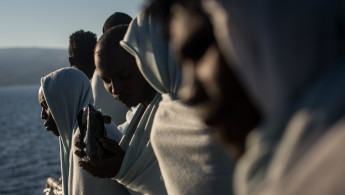Pregnant women among 45 dead crossing the Mediterranean
Morocco reported that at least 21 other migrants were rescued at sea.
Helena Maleno, who runs the Tangiers-based group Walking Borders, said she based her figure on accounts from seven female survivors of the smuggling boat that floundered and took on water on Wednesday.
"Survivors told me they had about 13 women on board. Many were pregnant," Moleno said by telephone. "There was also one young girl, between 12 and 14 years old, who didn’t survive."
The information was not immediately confirmed by Morocco.
A Moroccan official said the Royal Marines rescued at least 21 migrants on Thursday, a day after their rubber dinghy floundered. One body was recovered, he said, but he was unaware of the total number of dead.
The official, who had information about the sinking, was not authorised to discuss it.
He said the migrants, all sub-Saharans, were in a critical state when pulled from the water north of Nador.
Spain's Maritime Rescue Service said it offered Moroccan authorities logistical help for the search and rescue operation on Wednesday and Thursday.
Moleno said she was contacted on Wednesday morning by a family member but was only able to make contact with the small boat at 3:45 p.m. that day.
The migrants told her they were having trouble keeping their boat afloat.
Just over two hours later she said that migrants told her by phone: "We are sinking, the Zodiac is full of water." Then she said she heard screams.
Spain's maritime rescue said a plane from the European border and coast guard agency and the Algerian coast guard had also joined in the search.
It did not explain why they did not reach the boat in time.
Spain became the leading migrant entry route into Europe last year with over 57,000 unauthorised arrivals, according to the European Union. Morocco is the main departure point.
Around 2,300 people died crossing the Mediterranean Sea last year, according to the International Organization for Migration.





 Follow the Middle East's top stories in English at The New Arab on Google News
Follow the Middle East's top stories in English at The New Arab on Google News


